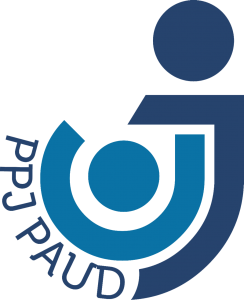Creating an early childhood entrepreneurial culture in TK ABA Temon Wetan district of Kulon Progo Yogyakarta
DOI:
https://doi.org/10.26555/jecce.v5i2.5490Abstract
The development of entrepreneurship in Indonesia is still limited. This is reflected in the lack of entrepreneurship education, especially at an early age. Entrepreneurship education is very important because it is related to various aspects of life. Likewise in developing countries, because the role of entrepreneurship is very important in development. The purpose of the study was to examine the cultivation of an early childhood entrepreneurial culture in the ABA Temon Wetan Kindergarten. This research uses the qualitative case study research method. The selection of this qualitative method was made because it can explain the data descriptively. The type of case study was also chosen by the researcher on the grounds that it could provide an overview of the formation of entrepreneurial intentions in early childhood in the kindergarten under study. The research was conducted at ABA Temon Kindergarten with a literature study method and a qualitative approach. The results show that 1) early entrepreneurship development in the implementation of learning is to train children's independence and courage through learning through play, such as trading; and 2) application of entrepreneurship learning through entrepreneurship education in all learning activities through play on an ongoing basis by integrating entrepreneurial values into the syllabus and lesson plans. So learning entrepreneurship from an early age is good to instill. The essence of entrepreneurship is how to instill ways of doing business, solving problems, and taking full responsibility for what children do. In addition to children, teachers must also be creative, innovative, and willing to guide children towards mastering entrepreneurial character.
References
Bornstein, D. (1998). Changing the world on a shoestring: ambitious foundation promotes social change by finding social entrepreneurs. Atlantic Monthly, 34–39.
Daryanto. (2012). Pendidikan Kewirausahaan. Gava Media.
Dimyati, & Mudjiono. (2006). Belajar dan Pembelajaran. PT. Rineke Cipta.
Fitroh, S. F., & Mayangsari, D. (2017). Kreativitas entrepreneurial leadership dalam pembelajaran kewirausahaan pada anak usia dini. Jurnal Pendidikan Anak, 6(2), 171–180. https://doi.org/10.21831/jpa.v6i2.17704
Hurlock, E. B. (2007). Perkembangan Anak. Erlangga.
Koesoema, A. D. (2010). Pendidikan Karakter Strategi Mendidik Anak di Zaman Global. PT. Grasindo.
Ndeot, F. (2018). Menanamkan jiwa kewirausahaan sejak usia dini di Era MEA. PERNIK Jurnal PAUD, 1(1), 1–9. https://doi.org/10.31851/pernik.v1i01.2621
Nurhafizah, N. (2018). Bimbingan awal kewirausahaan pada anak usia dini. Jurnal Konseling Dan Pendidikan, 6(3), 205–210. https://doi.org/10.29210/127300
Rusdiana, A. (2014). Kewirausahaan Teori dan Praktek (Pertama). Pustaka Setia.
Sugianto, E. Y., & Sutanto, E. M. (2013). Pengaruh entrepreneurial leadership terhadap iklim organisasional, kreativitas, dan inovasi karyawan bagian produksi pada Sbo TV. 1(2), 1–9.
Sugiyono. (2015). Metode Penelitian Pendidikan Pendekatan Kuantitatif, Kualitatif, dan R&D. Alfabeta.
Susilaningsih, S. (2015). Pendidikan kewirausahaan di perguruan tinggi: Pentingkah untuk semua profesi? Jurnal Economia, 11(1), 1–9.
Taulany, H. (2019). Keefektifan simulasi kewirausahaan anak (SIKADI) untuk menumbuhkan jiwa kewirausahaan anak usia dini di TK Al Hidayah Semarang. Indonesian Journal of Early Childhood, 1(1), 2019. https://doi.org/10.35473/ijec.v1i1.135
Taulany, Himmah, Dewi, N. K., & Prahesti, S. I. (2018). Pelatihan Simulasi Kewirausahaan Bagi Anak Usia Dini di Kecamatan Ungaran Barat Kabupaten Semarang. Jurnal Pengabdian Pada Masyarakat, 3(1), 53–66. https://doi.org/10.30653/002.201831.47
Ulfa, M., & Munastiwi, E. (2020). Analisis perencanaan dalam manajemen pendirian lembaga pendidikan anak usia dini. Leaderia: Jurnal Manajemen Pendidikan Islam, 26–37.
Widowati, E., Sugiharto, S., Wahyuningsih, A. S., Husodo, A. H., & Istiono, W. (2020). Transformation Prospect of a Non Disaster-Prepared-School in Implementing Management of Child Safety Education. Unnes Journal of Public Health, 9(1), 34–42. https://doi.org/https://doi.org/10.15294/ujph.v9i1.34378
Downloads
Published
How to Cite
Issue
Section
License
Copyright (c) 2022 Khairani, Erni Munastiwi

This work is licensed under a Creative Commons Attribution-ShareAlike 4.0 International License.
Authors who publish with this journal agree to the following terms:
- Authors retain copyright and grant the journal right of first publication with the work simultaneously licensed under a Creative Commons Attribution-ShareAlike 4.0 International License that allows others to share the work with an acknowledgement of the works authorship and initial publication in this journal.
- Authors are able to enter into separate, additional contractual arrangements for the non-exclusive distribution of the journals published version of the work (e.g., post it to an institutional repository or publish it in a book), with an acknowledgement of its initial publication in this journal.
- Authors are permitted and encouraged to post their work online (e.g., in institutional repositories or on their website) prior to and during the submission process, as it can lead to productive exchanges, as well as earlier and greater citation of published work (See The Effect of Open Access).














